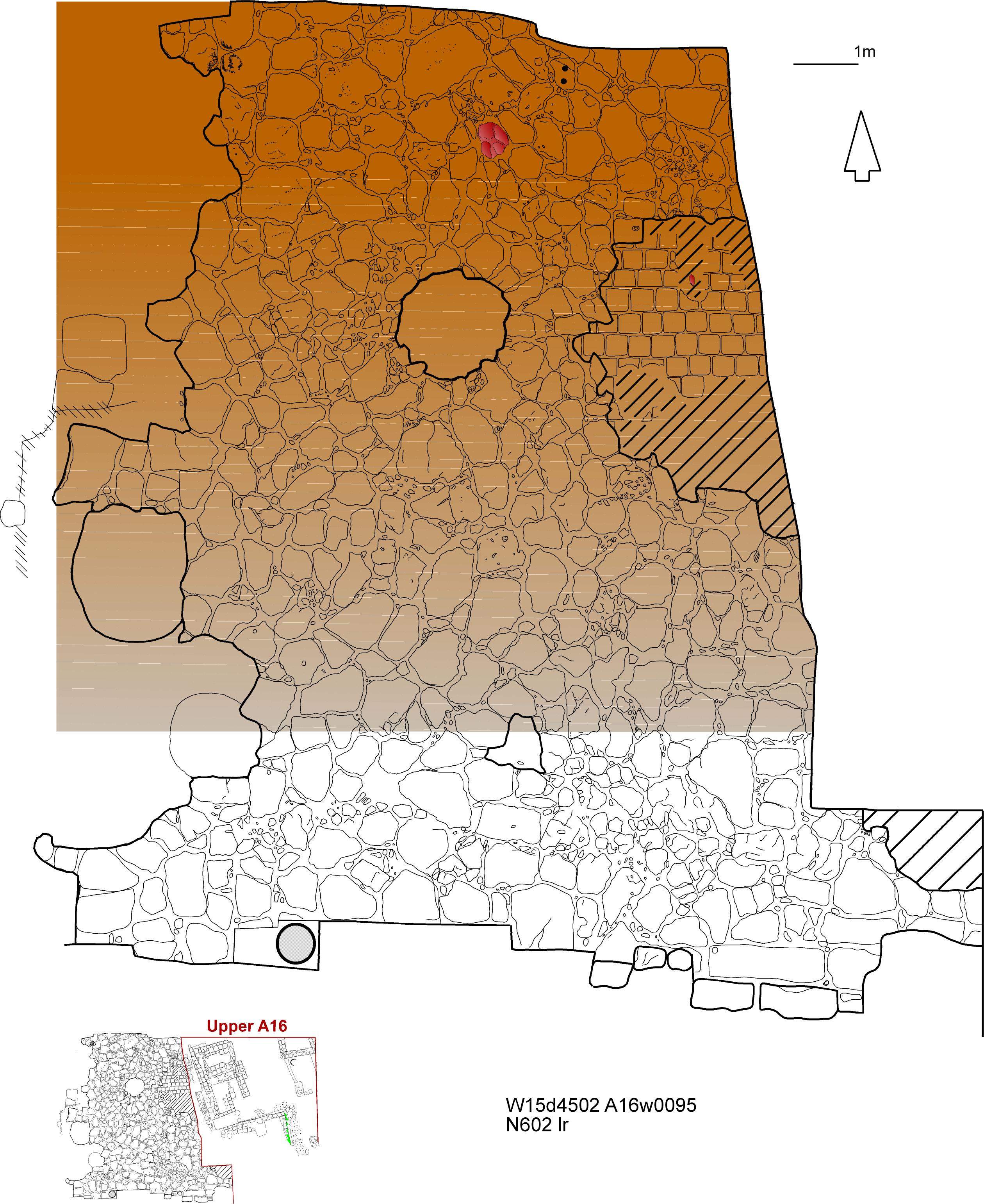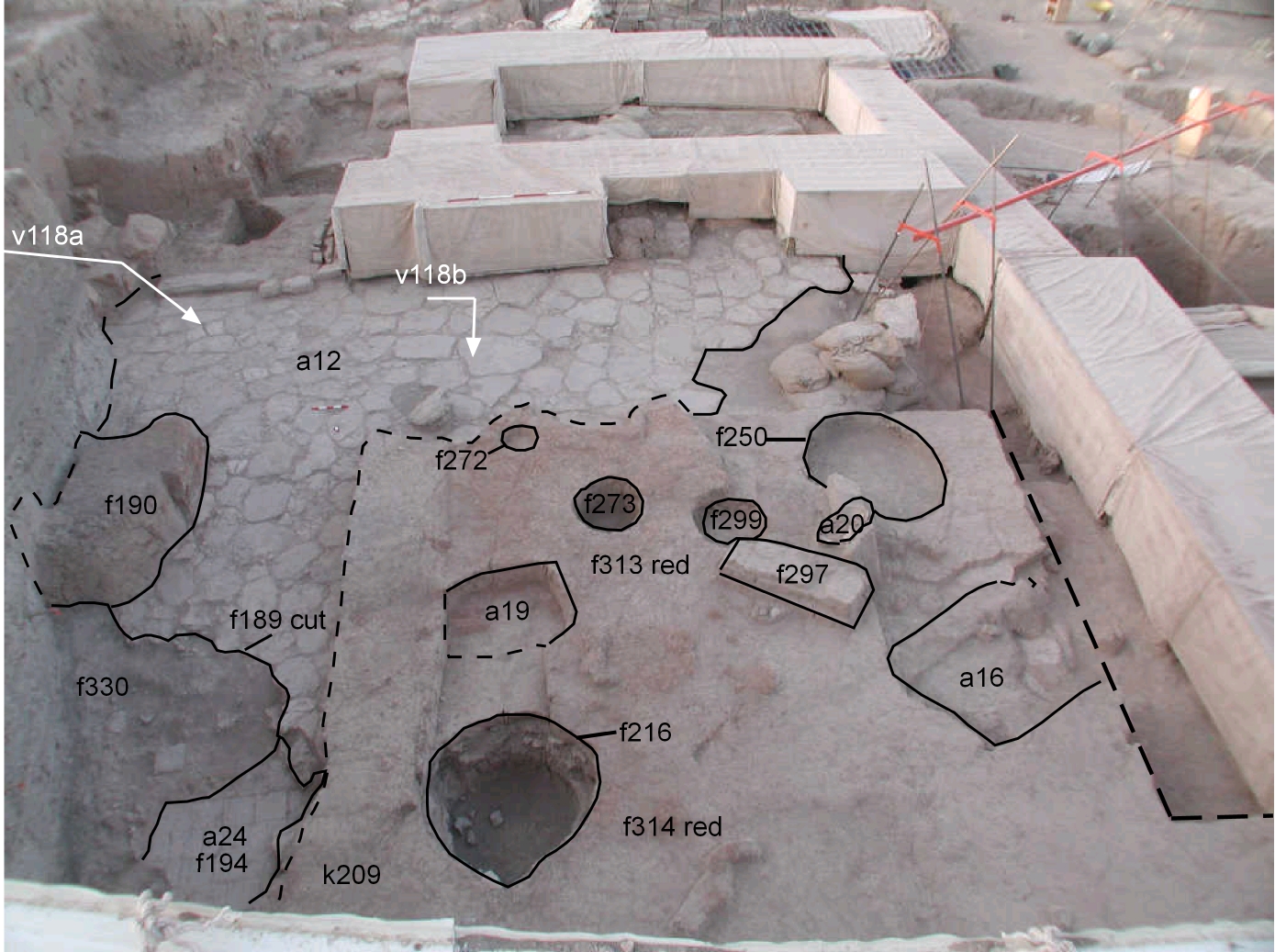Back to top: Phase 5hAAH within unit A16
Current version
This page was previously labeled Phase 4bAAC and was attributed according the AAC strata sequence. In June 2016, C. Chaves Yates revised all strata and phase information to match the updated AAH strata sequence. This page is current as of June 2016.
Back to top: Phase 5hAAH within unit A16
Outdoor accumulations
This later sub-phase is characterized by the formation of thin outdoor accumulations, but most of all by several pits and burials dug in the open area They dug the material of collapsed palace in the courtyard and are covered by the large dump a13/a17. The outdoor function of the area is also shown by two tannurs f180 and f199, and other installations like pebble pavement (f207), pottery lens (f178) and accumulations (f165, f186, f166, f210, f231).
Back to top: Phase 5hAAH within unit A16
Pits and burials
The pits can be divided into two categories: small and shallow pit (f273) and large and deep trash pits (f216 and f250). Some burials (a15 jar burial, a18, a19, a20 and a21) are safely assigned to phase 4b. Several others are uncertain in date and very likely dating between phase 5h and beginning of phase 6, but too few elements were found.


Back to top: Phase 5hAAH within unit A16
Objects
The funerary sets of the burials are the best chronological indicator. They usually include many metal objects typologically not distinctive: earrings (i72, i74, i124, i125, i134), bracelet (i73), blade (i70), pins (i76, i101, i158, i159). Many beads, mainly stone made, were found (i75.1-i75.9, i176, i177, i178, i179). Much more useful for a chronological definition are the ceramic vessels included in the funerary sets: jars (i68, i83, i97, i98, i114, i122, i139) and bowls (i69, i77, i130).
Other objects found are seal impressions (i99, i109, i113, i117, i167, i170), figurines (q524.1, q530.1, q573.1, q607.1, q618.1, q618.3, q643.3, q741.1), a fragment of clay plaque with a shape of a woman (q625.3), a stone stamp seal (i53). The material coming from accumulations sometimes shows mixed material, it is possible that in some areas the stratigraphy was mixed because of the several pits, and because the interface between different levels (for example between phase 5 accumulations and bottom of phase 6 dump) is not always easy to be defined.
Back to top: Phase 5hAAH within unit A16